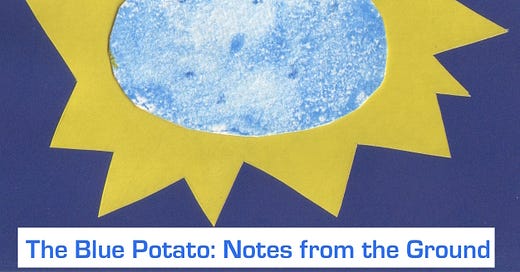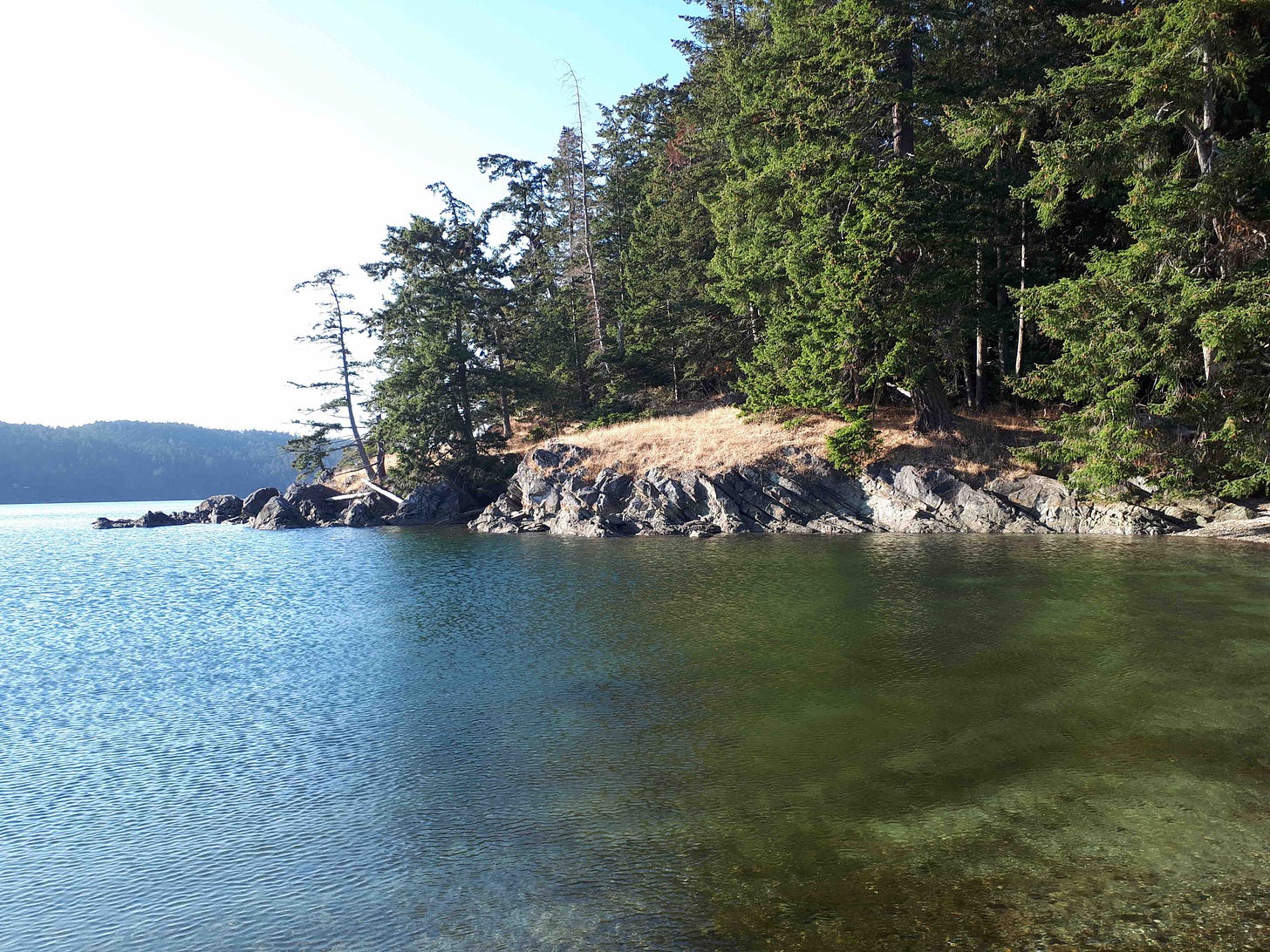The news about climate change goes on. And on. Still, there is hope. And as an environmental writer and teacher, it’s my job to bring it.
The first lesson is: there is no turning away. Mary Louie, an elder from the Okanagan Nation says:
Our water is . . . disappearing because it’s not being respected.1
In all of the writing and reports about climate change I’ve ploughed through in the last twenty years, Mary Louie’s words go straight to the heart. Weather events like extreme flood, and drought, along with the plastic-filled oceans, are an outcome, and a stark picture, of how westernized cultures think (or been trained to not think) about water. But that’s just the start of the story.
Respect for water (or any life form, including ourselves) can be modeled, and taught. And while environmental lessons should include science, and support for good climate policy, it also starts with the stories we tell.
In times of trouble I usually look to nature and to my own roots, and to the Celtic women I grew up with, my mum and my granny, for a clear, grounded perspective on what is important and why. They had both common sense and deep rooted respect for the natural world. Even as a child I saw that by giving weight to something that most people tended to ignore they made it important.
When we were little, we used to take our old wooden boat to a small edge of beach in Howe Sound off the lower mainland in BC, drop anchor, and spend the day. We swam in the water and played on the smooth grey rocks. The whole day was either going into the water, or coming out of the water, or being in the water. The water was magical; it drew you in.
Before we left the beach my mum always said: Say goodbye to the water. I was the youngest, and as all the bags, coolers, and towels were ferried across the water to the anchored boat, my mum and I stood on shore, and thanked the water. We looked at the water, then put our hand in and thanked it. Then we’d get in the wooden boat and leave the beach.
As the boat moved away through the clear green water into the Sound, we’d look back as the beach got further away, and smaller. That bit of water was special. A connection was made.
Water is on a journey. Water can also be a turning point in our own journeys. It’s a good story to get into.
Book Recommendation
Mindfulness in Wild Swimming: Meditations on Nature and Flow. by Tessa Wardley. Leaping Hair Press, 2017.
There are so many great books about water, and I’ll be recommending them all in future newsletters, but for this edition I’m recommending a book I picked up at the wonderful Bookmark Books in Halifax during last year’s King’s College Summer Writer Residency. Tessa Wardley’s book, Mindfulness in Wild Swimming is about both the health benefits and the intangible wonders of wild water swimming (or, swimming in rivers, lakes and seas). And for those who have yet to perfect conventional swim strokes (i.e. front crawl, back crawl or butterfly) the author shares this amazing news: The earliest recorded swim stroke in Europe was the dog paddle, popular until the 16th Century, when the breast stroke took over….modeled on the swim technique of a frog. Yes!
Recipe: DIY Lemon Water
Here’s how to make your own, fresh, radical, non-bottled, flavoured water.
3 lemons (regular lemons, the yellow kind that grows on trees)
6 cups of cold water
Wash lemons and slice. Thin slices or thick quarters, do what feels right. Put lemon pieces into a jug and pour water over. Chill for thirty minutes, or more. Serve in a glass. Ice and sprig of mint, optional. Remove lemons from jug after four hours max. Enjoy.
Winter Writing Prompt: Write a tiny-eco-poem.
Ponder water. When you’re ready, fill in the blanks below. Note: the sentences can be as long as you want, but for this one try to stay in the spirit of a light footprint poem
I am water and I am_____________
and I am _____________________
and _____________________.
I hope_______________.
Feel free to add a tiny drawing that sums it all up.
Source: Water: A First Nations' Spiritual and Ecological Perspective by Michael Blackstock. (2002). BC Journal of Ecosystem Management. 2. 10.22230/jem.2001v1n1a216.
About Me
I am a writer from Vancouver. The Blue Potato: Notes from the Ground is my newsletter about connecting to the earth through writing, reading, and life on the daily. MFA (Master of Fine Arts) Grad 2024 from King’s College Halifax. You can read more about me at my website: veronicagaylie.com or find me at times on instagram. Thanks for reading.





